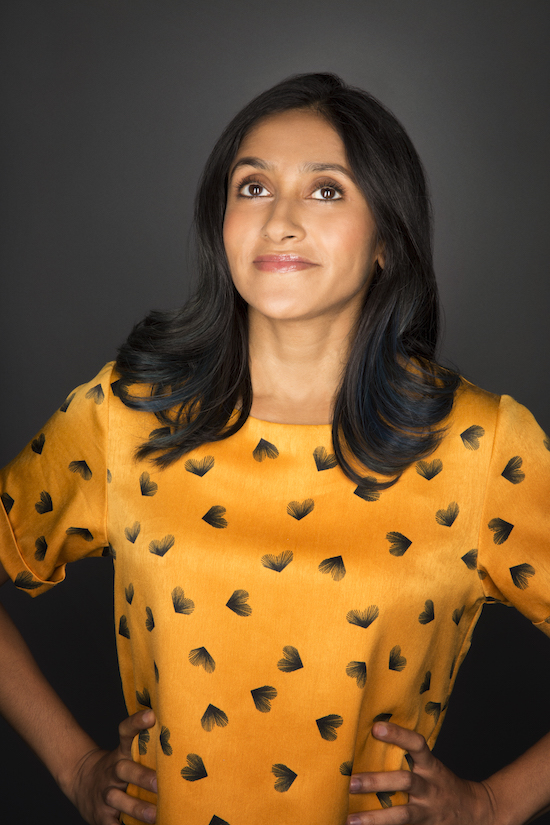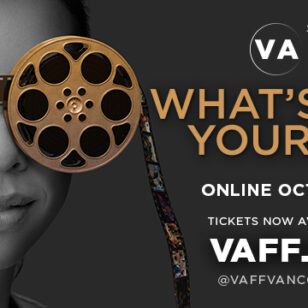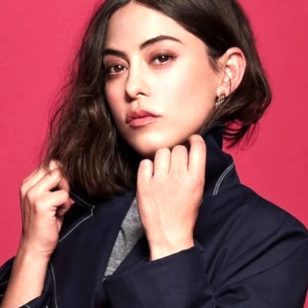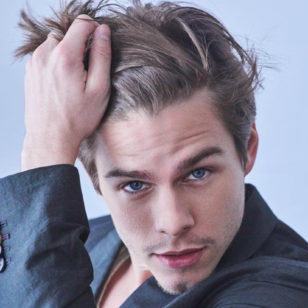
Aparna Nancherla comes to JFL Northwest for a show at the Biltmore Cabaret Feb. 25.
Aparna Nancherla has written for and appeared on numerous comedy TV shows, including Late Night with Seth Meyers and appeared on Inside Amy Schumer (Comedy Central) and on the upcoming season of Love (Netflix). In her adopted hometown of New York, the former Washington, DC resident hosts a long-running, popular live underground weekly comedy show, Whiplash. Besides stand-up, she is an experienced improviser. She comes to JFL NorthWest for a show at the Biltmore Cabaret, Feb. 25.
Q: Is this a good or a bad time to be a comedian?
A: I would say it feels a little bit different. Not just for comedians, but probably for everyone. The climate is definitely different than it’s ever been for a lot of people. I think it’s new ground that’s being navigated for a lot of artists in terms of what direction they want to go with their work. It’s definitely hard to stay apolitical right now. But I think it’s also a question of what do I want to be using my time onstage to do. I notice some people like to talk about what’s happening, and some people shy away from it a little more. It’s like trying to figure out if it’s something we should be talking about more, or making light of. It feels a little too much like we’re in it right now to really be able to see the levity.
Q: Have you been to Vancouver before?
A: I haven’t. I once passed through there, I think I went on a cruise with my parents in high school to go to Alaska and I think it left from Vancouver.
Q: That sounds like a comedy routine waiting to happen.
A: It was shortly before I started doing stand-up. I don’t think I’ve gone back and tapped into it. It’s only a faint memory now. But I don’t think it was as comedy-packed as you would hope.
Q: What inspired you to do stand-up in the first place?
A: I’m someone who came to it in a more haphazard way. I definitely didn’t know I would be a stand-up when I was a kid, and I had limited exposure to that whole world and I didn’t know it was something anyone could do. Then some friends and I during college went to an open mic near where we all lived. It was free and something to do at night and I think two of us were interested in comedy stuff. I was more interested in writing. We both watched one night and not everyone was at a professional level, so we were like, “I guess anyone can get up there. Let’s try it before the end of the summer.” That was the first time I tried it. It was a random thing that landed on the map.
Q: Do you remember any of the jokes?
A: I remember I was working a couple of jobs, it was summer. I was a kids’ camp counsellor so I was talking about kids’ behaviour, then I worked at a Gap or something, and I had a joke about fitting rooms. Then I think I had a joke about public restrooms. Those are the ones that I remember.

Q: When comedians get together, do they talk about their first time doing comedy?
A: Not really. I feel like it gets asked more in interviews. Comedians themselves don’t talk about when they started, but their most recent shows. I think everyone for the most part is not very good for your first year or two. Most comedians don’t want to go back to that time and really dwell on it.
Q: You have to have a lot of determination to be bad at something and stick with it for that long.
A: The beauty of it is you don’t realize you’re bad when you’re starting. Then you look back and go, “That was really not good. There were a lot of mistakes, or just rough patches.” But yeah. You have enough, I guess delusion, to keep going.
Q: You have an album, Just Putting It Out There (on Bentzen Ball Records). How did you approach what you were going to put on there?
A: Like a lot of people’s first albums it ends up being an accumulation of stuff that you’ve done in the past few years. A lot of it was figuring out if there was a structure or arc to the material. I knew what the hour would be based on building it for the past few years. It was more a question of figuring out how it would flow naturally.
For me, I had toyed with the idea of doing an album but never made a concrete plan. It was Tig Notaro, who is definitely one of my comedy heroes, she has always been very encouraging, and she came to me with the offer that she was starting an imprint on the label that had released her album. She asked if I wanted to do one for her label and that lit the fire to actually do it.
Q: Do you have any all-time favourite comedy albums?
A: I’m bad about listening to people’s albums. I can’t speak for all stand-ups but I know there’s a decent number of us, because we watch so much comedy when we’re out and about I tend to consume content that’s not stand-up. But some of the albums that influenced me when I was starting were Paul F. Tompkins‘ Impersonal (2007) and Mitch Hedberg‘s first album (Strategic Grill Locations, 1999). And definitely all of Maria Bamford’s albums. Those are definitely four I listened to a lot. And Jim Gaffigan too, his first two albums.
For tickets to Aparna Nancherla at the Biltmore and more info, visit jflnorthwest.com.
















